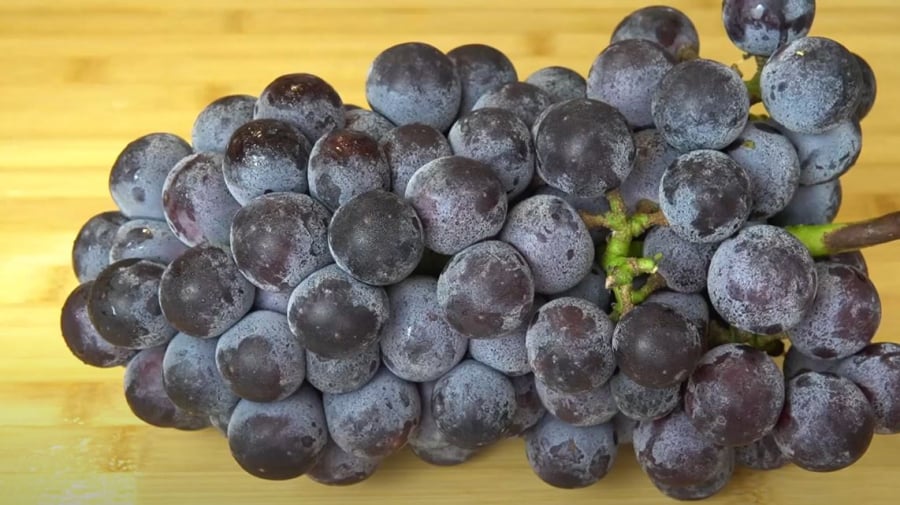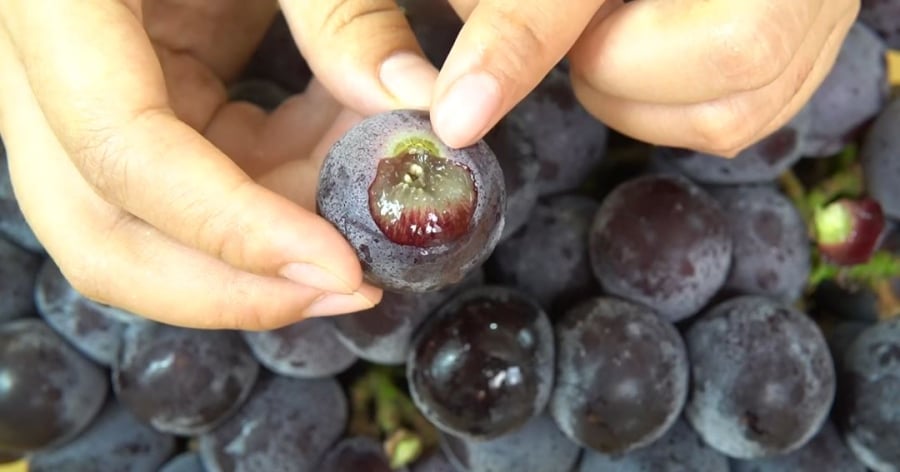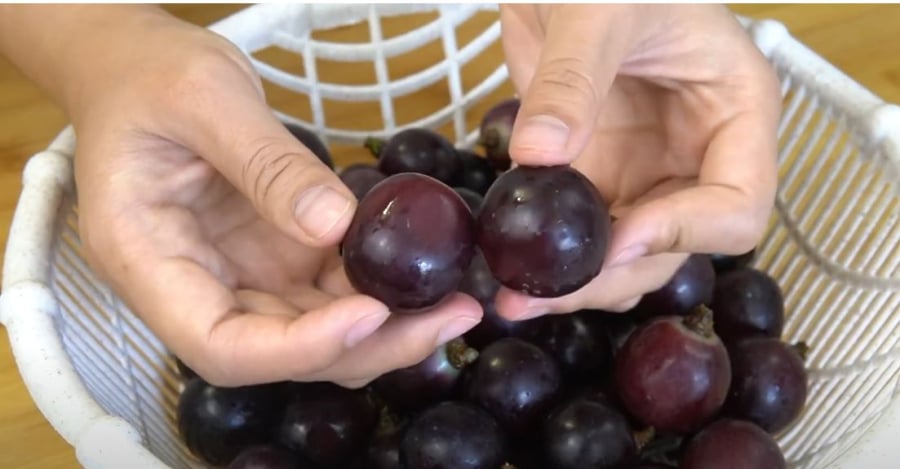Grapes are a nutrient-rich fruit, packed with vitamins C and K, calcium, and magnesium, which strengthen bones and boost immunity. They also contain antioxidants that prevent disease and slow down the aging process.
One of the biggest mistakes people make when washing grapes is leaving them in large clusters. Grapes are tightly packed together, making it difficult to clean the inner layers. The spaces between the grapes are breeding grounds for bacteria and parasites, as they tend to trap dirt and grime.

Grapes (like many other fruits) have a natural waxy coating on their skin. To properly clean them, soak and rinse them to remove any dirt and this waxy layer.
Simply rinsing grapes with water may not be enough to remove all the harmful substances. To ensure your grapes are thoroughly cleaned, try these helpful tips:
Separate the grapes from the cluster before washing
Start by cutting each grape from the stem using scissors, leaving a small piece of the stem attached to the fruit. Avoid pulling grapes off with your hands as this can tear the skin, allowing bacteria to enter. The remaining stem will keep the grape intact and prevent water and dirt from seeping in during washing.

Don’t pull grapes off the stem with your hands as it can tear the skin. Use scissors to cut them, leaving a small piece of the stem attached.
Washing methods
– Wash grapes with salt
Place grapes in a basin and add a small amount of salt. Gently rub the grapes with your hands, then rinse them several times with clean water. Let the grapes air dry before consuming or storing.
– Wash grapes with baking soda
Fill a basin with water and add 1-2 teaspoons of baking soda. Soak the grapes for about 1 minute. Baking soda breaks down the bond between the surface of the grapes and any adhering substances, making it easier to wash them away. Gently rinse the grapes multiple times with water to ensure they are thoroughly cleaned.
– Wash grapes with flour
Flour effectively removes dirt and the natural waxy coating on the surface of grapes. While this waxy layer is protective, it can attract and bind with dust and other substances, making it important to thoroughly clean the grapes. Place the grapes in a basin, add a small amount of flour, and mix well. Then, add water to submerge the grapes and stir to dissolve the flour. Soak the grapes for about 2 minutes. The tiny flour crystals have a strong absorbent quality, helping to draw out dirt and grime from the grape’s surface. Afterward, rinse the grapes multiple times with water to ensure they are clean.
You can also combine methods by washing grapes with salt (or baking soda) and flour to ensure a thorough clean.

After washing, the grapes’ skin will look clean and shiny.
Storing fresh grapes
If you’re not planning to eat the grapes right away, there’s no need to wash them first. The natural waxy coating on the grapes’ skin helps keep them fresh for longer. Store unwashed grapes in the refrigerator. When you’re ready to eat them, take them out and give them a good wash.
For washed grapes, ensure they are completely dry before transferring them to an airtight container (you can line the bottom with a dry paper towel to absorb any excess moisture or use a specialized container for produce). Store the container in the refrigerator for later consumption.
“A Tasty Transformation: Plunging Grapes into Briny Bliss for a Pristine Treat”
Introducing the ultimate guide to cleaning grapes: a two-step process that ensures your fruit is not only free from dirt and grime but also from any pesky insect eggs that may be lurking in those tight clusters. A simple salt water rinse is not enough to guarantee cleanliness, as the eggs can be stubborn and hard to reach. So, take that extra step and rest assured that your grapes are safe and ready to be enjoyed!
The Ultimate Guide to Sparkling Clean Grapes
“For those who adore the tangy, sweet burst of flavor that fresh grapes offer, there’s often one nagging issue: the pesky layer of powdery residue that clings to their surface. It’s a tedious task to wash them thoroughly. But fear not, as baking soda is here to save the day and make your grape-washing woes a thing of the past.”













